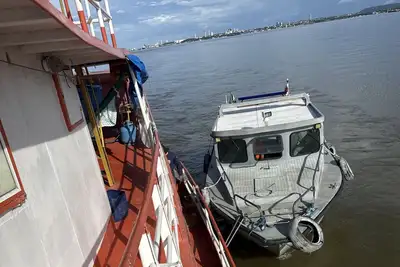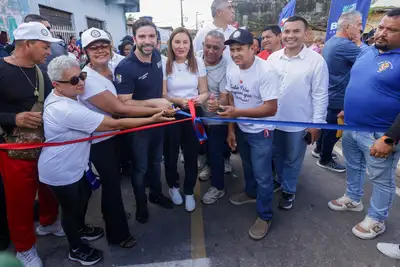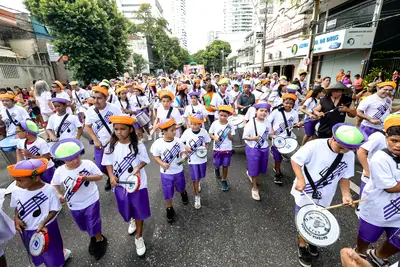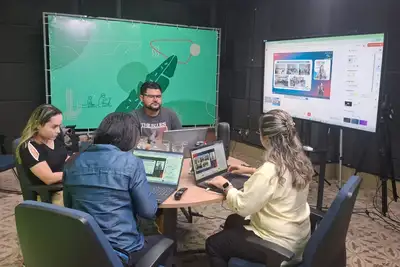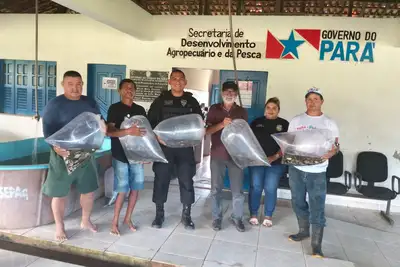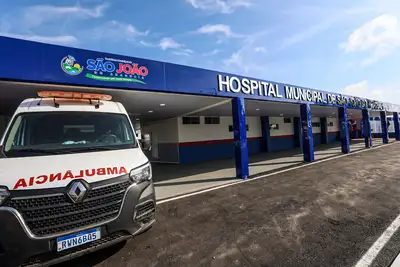State invests in animals such as horses and dogs to assist in security and social defense missions
Pará utilizes the potential of animals for actions such as patrols and preventive policing, as well as in intensive therapies like equine therapy and visits from Military Police dogs to hospital units
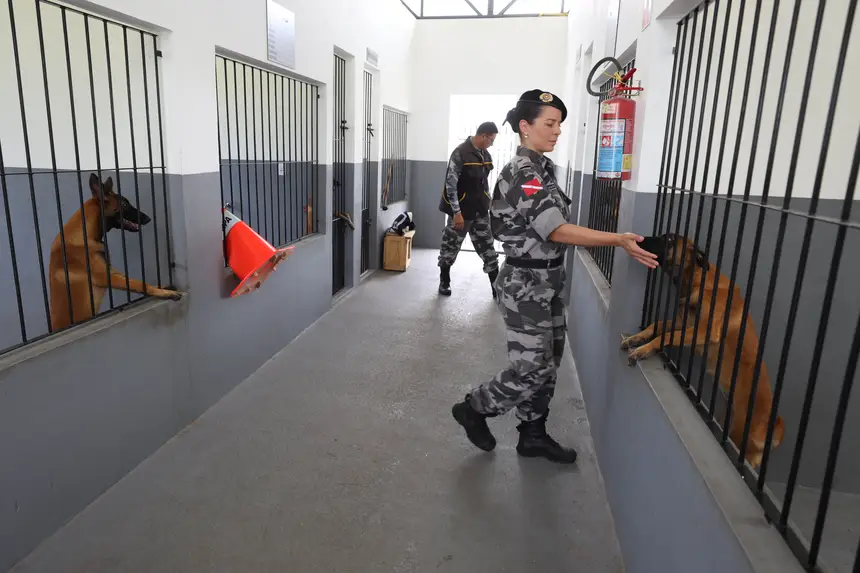
The work developed with animals by the state's public security reinforces the actions carried out in police missions, ensuring greater effectiveness in preventive and ostensive policing, as well as in social defense activities with the community. The Military Police dogs, bred and trained at the Canine Action Battalion (BAC), along with the horses from the Mounted Police Regiment (RPMont), strengthen the security operations by utilizing the strategic potential of the animals.
“The state's public security forces count on the important help of animals in policing, prevention, and ensuring public order. The dogs are allies both in locating drugs and in locating people. The Mounted Police is essential at major events, in sports venues, and in controlling civil disturbances. Investments in animals are made so that we can increasingly ensure control and security for the population, as well as assist in therapies and community-oriented actions,” emphasized Ualame Machado, head of the Secretariat of Public Security and Social Defense (Segup).
Dogs and training - In the Military Police, the dogs receive daily care from police officers and veterinarians who work at the Military Police Canine Action Battalion (BAC), where the animals are trained to perform missions related to narcotics detection, as well as in the segments of explosive detection, searches, and captures related to the protection of agents.
Some dogs are also designated to participate in social actions, visiting hospitals and giving lectures, being specifically trained for these activities. “We select the animals so that according to each profile, we direct them to specific activities. Within our group, we have dogs that are more sensitive to affection and that adapt better to people; these are trained for interaction with children and adults to be used in treatments in oncology hospitals. The others are directed to more ostensive training, such as those that operate in police missions,” highlighted Lieutenant Colonel Salazar, commander of the BAC.
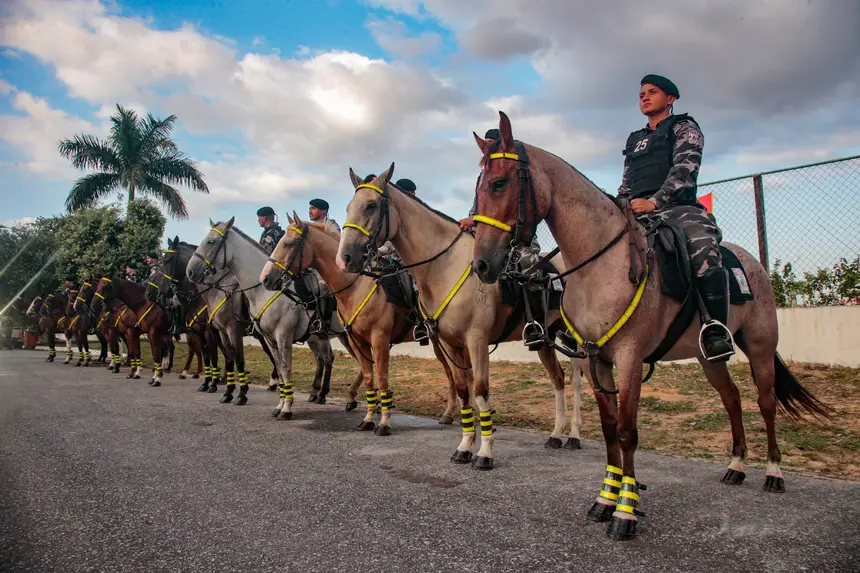
The dogs that make up the battalion are also prepared to act in various fronts of action, such as the animals that work with the Special Police Operations Battalion (Bope), which are selected according to the segment they are trained for, as well as those that operate in the Public Security River Bases, which assist in drug identification.
“Our training is daily, with veterinary supervision, and is entirely focused on ensuring that each dog specializes in a single type of action, through a specific training team from the birth of each one. In our maternity unit, we develop specific work with each animal, periodizing the learning window according to their months of life. Thus, when a mission is assigned, we can deploy a dog specialized in the segment, whether narcotics, explosives, or any other type of diligence, and even for activities and therapies with civil society,” pointed out the general commander of the Military Police, Colonel Dilson Júnior.
Mounted Police and Equine Therapy - The Military Police also works with horses that assist in the Mounted Police Regiment, known as Cavalry, a strategic policing modality aimed especially at patrolling in hard-to-reach areas, monitoring events and demonstrations, such as sports games, in football fields and in situations of crowding and turmoil. In these situations, the importance of the cavalry and the good training directed towards these animals facilitate police action and ensure an important role in maintaining public order.
“Our horses receive all necessary care, with training, good nutrition, and respecting, above all, their rest and sleep schedule. Each of these horses receives daily care from their handlers, who are military police officers that work daily with the animal on the streets, which helps to create important bonds of trust and command for them to act when necessary for the good development of the animal,” said Lieutenant Colonel Mardonia Alves, director of the Equine Rehabilitation Center.
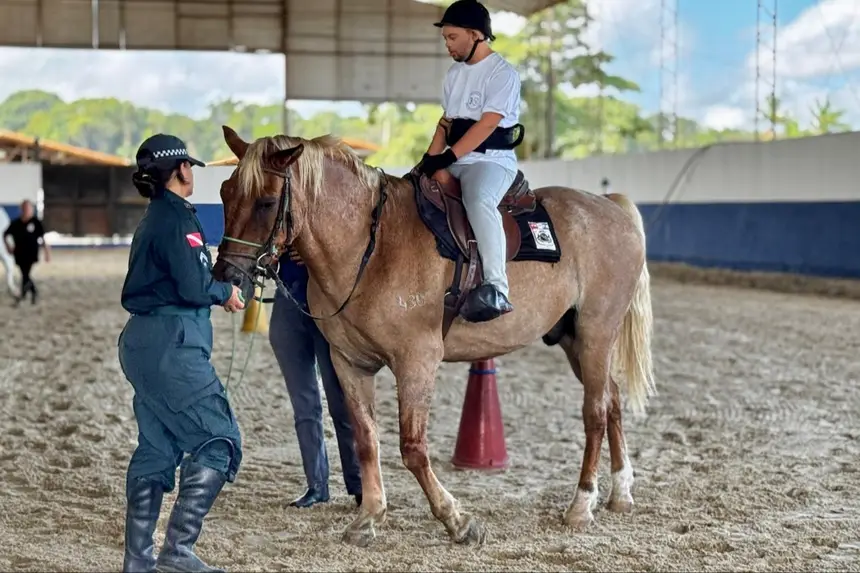
Another work developed by the Military Police horses is at the Interdisciplinary Equine Therapy Center (Ciec) in Belém, which focuses on assisting in the recovery of patients with neurological problems and motor injuries in adults and children. Patients practice a different therapy that includes horses in all activities and participate in sociocultural projects that promote social inclusion for people with disabilities. The work is carried out by a multidisciplinary team composed of physiotherapists, physical educators, psychologists, occupational therapists, pedagogues, speech therapists, guides, and the equestrian.
The horses directed for this modality meet specific requirements, such as size and temperament, and are trained daily to meet the needs of children and adults in treatment.
“The work done with these horses is different from the horses that go for policing. They have daily management in terms of hygiene and general health inspection, physical health, and behavioral health, because the horse has its own temperament. So, the caretaker, who is the military personnel, conducts all these inspections, being attentive to the animal daily. This horse, even if it does not attend to any child, receives daily stimuli, as it is also a therapist and needs to be prepared to be ridden by children. The trainer conducts a warming-up activity to ensure it does not lose its calmer behavior during the sessions, so it gets used to, for example, the noises of the environment and thus has more resistance and tolerance to these sound stimuli, so it does not get startled and there is no risk of knocking down the child. Everything is thought out and managed so that our work is carried out correctly and that the animal remains healthy for this mission,” emphasized the director.




